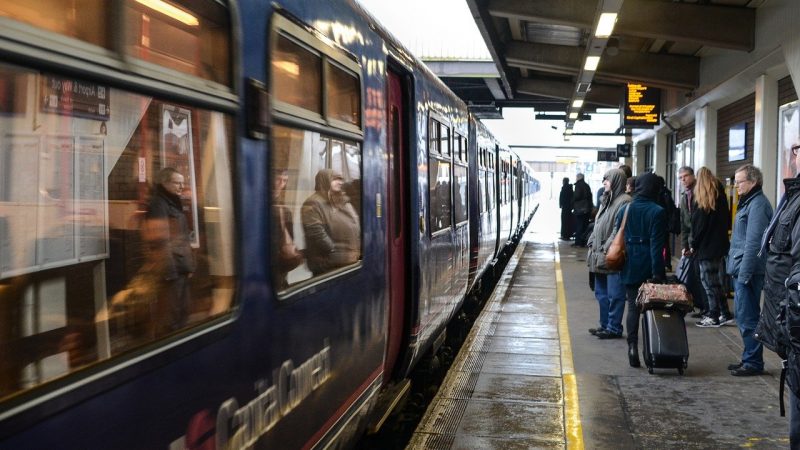The highest-paid directors of these private companies earn almost twice as much as the chief executive of Network Rail.

Labour announced this week that it will renationalise the railways, if elected. The party referred to the move as the ‘biggest overhaul to our railways in a generation.’
Under Labour’s proposals, train companies would be brought back into public ownership and run by a new body, Great British Railways, as their privatised contracts expire.
While the announcement has been broadly welcomed, with RMT general secretary Mick Lynch saying a publicly owned rail network is in the “best interests of railway workers, passengers and the taxpayer,” public ownership campaigners We Own It warn it doesn’t go far enough.
Following Labour’s announcement, Johnbosco Nwogbo, lead campaigner at public ownership campaign group We Own It, said it was time to “decommission the gravy train.”
“With delays and cancellations rife and some of the most expensive fares in Europe, polls show that over two thirds of us want our railways to be brought into public hands. Labour have rightly identified that the ownership of our public services will be a key issue for voters at this election.
But Nwogbo argues that Labour needs to go further, urging for rolling stock companies to be privatised too.
Rolling stock companies (ROSCOs) lease the engines and carriages to train operating companies, all under government-issued franchises. Labelled as a ‘hallmark’ of British rail privatisation, the ROSCO-leasing framework can be traced back to John Major’s Conservative government, when the core activities of British Rail were privatised.
Official figures released in February showed that the rolling stock companies that lease out trains for Britain’s railway, had seen their profits treble in a year, with more than £400m paid in dividends.
As the rest of the railway was told to make extreme cuts and the salaries of staff were frozen, the ROSCOs paid out a total of £409.7m to shareholders and profit margins rose to 41.6% in 2022-23, according to the Office of Rail and Road.
The three rolling stock companies, Eversholt, Porterbrook and Angel Trains, have paid cumulative dividends of around £2bn in the last decade. The companies’ highest-paid directors earn almost twice as much as the chief executive of Network Rail, Andrew Haines, as the Guardian reports.
“If Labour is serious about preventing leaking profits, they should go further and commit to renationalising the rolling stock companies to prevent hundreds of millions of pounds going out in profits. ROSCO profits tripled to £409.7m last year alone,” said Johnbosco Nwogbo.
Richard Murphy, author of Funding the Future, which campaigns for a fairer and sustainable economy, echoes such calls. Murphy argues that rail nationalisation is a welcome step, but only the first of many Labour will need to take.
“There is no apparent plan to set up a new state owned rolling stock company to supply new rolling stock and reduce the cost of new investment. That makes no sense,” he writes.
Gabrielle Pickard-Whitehead is a contributing editor to Left Foot Forward
Left Foot Forward doesn't have the backing of big business or billionaires. We rely on the kind and generous support of ordinary people like you.
You can support hard-hitting journalism that holds the right to account, provides a forum for debate among progressives, and covers the stories the rest of the media ignore. Donate today.



